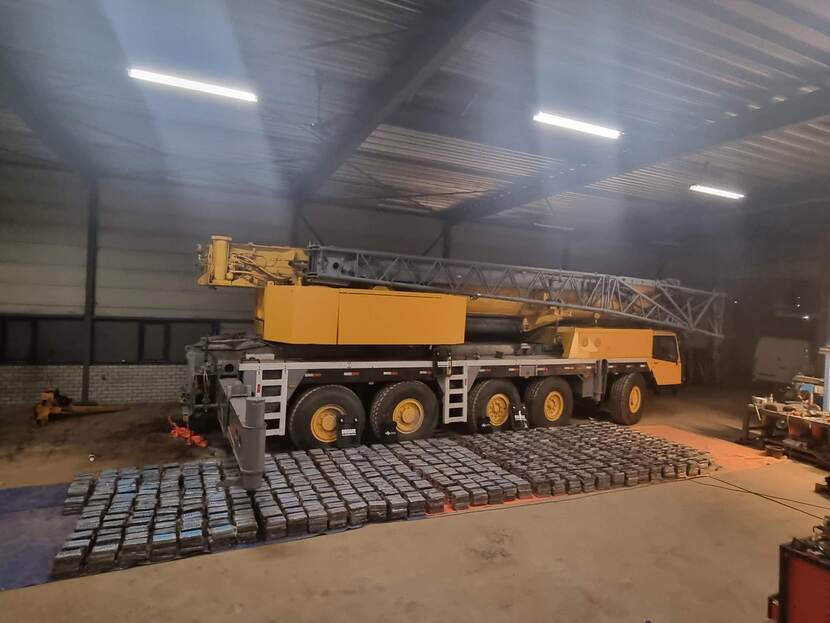Drug seizures at Dutch ports decline for third year in a row

A telescopic crane was the most unusual method used to smuggle cocaine into the Netherlands last year, the public prosecution department said on Friday. In total, 3,100 kilos of the drug were packed into the vehicle, which was seized by officials at Moerdijk port.
In 2024, customs discovered over 38 tonnes of illegal drugs being smuggled into the Netherlands via Dutch ports. Fruit shipments remain the most popular place to hide drugs, particularly bananas, but they were also been found among scrap metal, alcohol and timber.
Some 26 tonnes were brought in via Rotterdam port, marking the third decline in a row. In 2023, the total reached over 45 tonnes, the department said. There was a slight increase in drugs found at the ports of Vlissingen, Moerdijk and Terneuzen – 12.6 tonnes compared with 11.3 tonnes in 2023.
Cocaine accounted for the bulk of the seizures, but smaller quantities of cannabis, hashish and crystal meth were also discovered. Most of the cannabis came from Canada, where the drug is now legal to grow, the department said.
Last year, 83 people were arrested as part of investigations into drug smuggling, including three directors at a port company. In addition, 266 youngsters were caught attempting to remove drugs from containers at the behest of drug gangs, down from 452 the year before.
Shipments were also smaller last year, which could be due to smugglers spreading their risks, a customs spokesman said.
Officials say the drop in seizures may well be down to new ways of working, including improved cooperation between the police, port and shipping companies, and the public prosecution department.
Rotterdam is also one of 20 European ports taking part in the European Ports Alliance, an EU initiative launched in January 2024 in Antwerp to fight drugs trafficking.
Port police put the street value of last year’s drug seizures at €917 million.
Thank you for donating to DutchNews.nl.
We could not provide the Dutch News service, and keep it free of charge, without the generous support of our readers. Your donations allow us to report on issues you tell us matter, and provide you with a summary of the most important Dutch news each day.
Make a donation